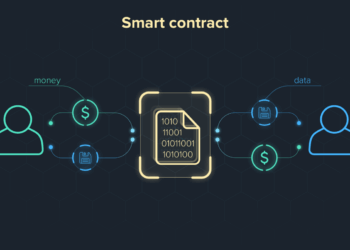New SEO Tools: Ranking Secrets Unlocked
The landscape of search engine optimization (SEO) has undergone a profound metamorphosis, shifting from keyword stuffing and manual link building to a sophisticated, data-driven discipline. Today, success is predicated on technical excellence, user experience, and the creation of highly relevant, expert-level content at unprecedented speed and scale. This seismic shift is entirely powered by a new generation of AI-driven SEO tools that are no longer just assistants, but essential components of a top-tier ranking and revenue strategy.
For publishers and marketers focused on maximizing Google AdSense earnings, the equation is simple: high rankings and high-quality, high-volume traffic in lucrative niches directly translate to higher ad revenue and better Cost Per Click (CPC). Achieving this demands abandoning old, manual processes for the hyper-efficiency and precision of AI. This comprehensive guide will dissect the essential AI-powered SEO secrets and techniques needed to dominate search rankings and supercharge your AdSense income in the current competitive environment, ensuring your content is not just visible, but profitable.
The AI Revolution in Search Engine Optimization
AI has integrated itself into the very core of Google’s ranking algorithms (e.g., RankBrain, BERT, and the core updates emphasizing E-E-A-T: Experience, Expertise, Authoritativeness, and Trustworthiness). Consequently, the tools we use to optimize content must operate on the same advanced level. The most potent AI SEO tools leverage Large Language Models (LLMs) and deep machine learning to perform tasks that were previously impossible for human teams to scale.
The Core Pillars of AI-Powered SEO
AI technology fundamentally enhances three critical pillars of SEO, which collectively drive both organic visibility and AdSense performance:
A. Data Analysis and Insight Generation: AI processes terabytes of ranking data, competitor profiles, and user engagement metrics far faster and more accurately than any human team. It identifies content gaps, lucrative topic clusters, and high-intent, high-CPC keywords that would otherwise remain hidden. B. Content Creation and Optimization: AI generates comprehensive, contextually relevant, and technically perfect drafts. It then optimizes this content in real-time to align with search intent, target specific entities, and achieve the structural elements necessary for Featured Snippets or AI Overviews. C. Technical and Operational Efficiency: AI automates the tedious, repetitive tasks of technical SEO, such as site audits, identifying crawl errors, monitoring backlink health, and structuring internal links, freeing up human strategists for high-level planning.
Mastering High-Value Content Creation with Generative AI
The biggest bottleneck for any high-traffic, AdSense-driven site is the ability to produce a constant stream of expert-level content. Generative AI tools solve this by dramatically collapsing the time from idea to polished publication. The goal isn’t just to write faster, but to write smarter—targeting valuable topics that attract premium advertising.
Strategic AI-Driven Content Workflow
A successful AI-integrated content strategy follows a precise, multi-step workflow focused on revenue:
A. High-CPC Keyword and Niche Identification: AI tools analyze historical ad data and search trends to identify queries in high-value verticals (e.g., insurance, financial planning, enterprise software) that have a high average CPC. Content is then prioritized based on this direct revenue potential. B. Comprehensive Topic Cluster Mapping: Instead of isolated articles, AI maps out topic clusters, identifying all subtopics and related questions an authoritative article must cover. This strategy builds topical authority—a major Google ranking factor—by demonstrating comprehensive knowledge. C. First Draft Generation and Structural Integrity: The AI is tasked with generating a detailed, structured draft that includes appropriate headings (), introduction hooks, and a strong conclusion. It ensures the content naturally covers all required entities and concepts for the target topic. D. E-E-A-T and Fact-Checking Layer: The human editor’s primary role becomes verifying the AI’s output. This involves fact-checking, adding unique proprietary insights or case studies (the ‘Experience’ element of E-E-A-T), and ensuring the tone aligns with the brand’s authoritative voice. E. On-Page SEO and Readability Scoring: Specialized AI optimizers scan the final draft, suggesting adjustments to internal linking, anchor text variation, title tag length, and meta descriptions. Crucially, they score the content against competitors to ensure it meets or exceeds the required word count and topical breadth.
Advanced Prompt Engineering for Quality Output
The quality of AI output is directly proportional to the quality of the input prompt. To achieve content that passes plagiarism checks and ranks highly, specific, detailed instructions are essential.
A. Define the Target Audience and Intent: Specify who the content is for, their prior knowledge level, and their specific goal (e.g., “Target is a small business owner looking for a clear comparison of three specific CRM software options to make a purchase decision”). B. Set a Persona and Tone: Instruct the AI to adopt an expert, authoritative, and trustworthy persona (e.g., “Write in the voice of a seasoned financial analyst with an encouraging, yet formal, tone”). C. Mandate Specific Structural Elements: Demand the inclusion of specific high-value elements, such as a summary at the top, a final section based on related “People Also Ask” queries, and a table comparing key features. D. Specify Key Entities and Concepts: Provide a list of 5-10 non-obvious entities (e.g., specific dates, industry benchmarks, named algorithms) that must be woven into the text. This demonstrates depth and relevance. E. Require Source Attribution and Citation Style: For sensitive or fact-heavy topics, instruct the AI on how to integrate factual claims and, where possible, specify the need for external, high-Domain Authority (DA) links to be used as sources.

Technical SEO Automation for Foundation Building
Even the most brilliant content will fail if the underlying website foundation is unstable. AI tools provide the continuous, granular monitoring required to maintain a perfect technical score, a prerequisite for top rankings.
Continuous Site Health Monitoring
AI tools eliminate the reliance on infrequent, manual technical audits by constantly crawling your site like Googlebot.
A. Real-time Core Web Vitals (CWV) Analysis: AI monitors live user data to detect sudden drops in performance metrics like Largest Contentful Paint (LCP) and Cumulative Layout Shift (CLS). It diagnoses the root cause (e.g., unoptimized images, render-blocking resources) and suggests specific code fixes. B. Automated Crawl Budget Optimization: For large sites, AI identifies and prioritizes the most important pages, ensuring Googlebot wastes no time on low-value, thin, or canonicalized content. This guarantees that your fresh, revenue-generating pages are indexed quickly. C. Broken Link and Redirect Chain Detection: These tools instantly flag errors and excessively long redirect chains that degrade user experience and waste crawl equity, helping maintain the site’s structural integrity. D. Schema Markup Generation and Validation: AI can automatically generate correct and complex structured data markup (e.g., schema) for new content and validate existing schema, which is vital for winning rich snippets and enhancing SERP visibility.
AI in Backlink Analysis and Strategy
While AI cannot magically acquire high-authority backlinks, it significantly improves the efficiency and safety of backlink management.
A. Automated Toxic Link Detection: AI algorithms constantly analyze the profiles of sites linking to you, flagging those with suspicious, spammy, or low-quality metrics. This allows for prompt disavowal to protect against negative SEO attacks and algorithmic penalties. B. Link Gap and Competitor Analysis: The tools identify high-DA websites that link to your direct competitors but not to you. This creates a highly prioritized list of link opportunities for your outreach team. C. Internal Linking Structure Optimization: AI uses graph theory to suggest the most effective internal link placement, ensuring “link juice” flows optimally to your high-priority, revenue-focused pages. This reinforces topical clusters and boosts the authority of key content assets.
AdSense Revenue Maximization Through AI
The final, critical step is ensuring the optimized content actually generates maximum possible ad revenue. This goes beyond simple page views and requires attracting the right ads to the right users.
Targeting High-CPC Niches for AdSense Dominance
The secret to maximizing AdSense is understanding that traffic volume is less important than traffic value.
A. Intent-Based Keyword Selection: Use AI to focus on commercial intent keywords (e.g., “best product review,” “service pricing comparison,” “tool alternatives”). These queries attract users close to a purchasing decision, which commands the highest bidding from advertisers. B. Content Gating and Premium Topics: Identify topics where the AI suggests a very high potential CPC. Develop deeper, longer, and more authoritative content around these subjects, potentially isolating them to pages with a higher ad density or more prominent ad positions. C. Ad Placement and Optimization Testing: While Google’s Auto Ads are intelligent, AI tools can run more targeted A/B tests on custom ad unit placements (e.g., between the second and third tags) to find the absolute sweet spot for Viewability and Click-Through Rate (CTR), maximizing (Revenue Per Mille).
Future-Proofing with Generative Experience Optimization (GEO)
As Google’s search result pages evolve with more AI Overviews and enriched snippets, content needs to be designed to feed these systems perfectly, ensuring visibility even when a user doesn’t click through to your site.
A. Answering the Direct Question First: AI is used to structure content so that the direct answer to a query appears within the first words. This is a critical factor for winning both Featured Snippets and being cited in AI Overviews. B. List and Table Formatting: The AI is prompted to summarize key information into perfectly formatted lists () and data tables. These formats are highly prioritized for display in Google’s current and future AI-driven search formats. C. Voice Search and Conversational Query Optimization: AI tools help identify and optimize for the longer, more conversational queries typical of voice search. By structuring content to directly answer these questions, you capture an increasingly valuable segment of user traffic.
The Human Element: Oversight and Strategy
AI is a tool, not a replacement. Its greatest value is in allowing human experts to focus entirely on strategy, creativity, and the application of genuine expertise—the elements of E-E-A-T that AI cannot authentically replicate.
The New Role of the Human SEO Professional
A. Prompt Engineering Master: The ability to craft sophisticated, multi-layered prompts that guide the AI to generate highly unique, on-brand, and well-researched content. B. Expertise and Experience Injector: Providing the proprietary data, real-world case studies, and personal insights that elevate the content from generic AI output to truly authoritative, trust-building material. C. Ethical and Compliance Gatekeeper: Ensuring the responsible use of AI, checking for plagiarism, maintaining data privacy standards, and ensuring full compliance with Google’s quality guidelines to protect the site’s long-term health and monetization status.
By embracing these AI-powered ranking secrets, publishers can create a scalable, efficient, and highly profitable SEO operation, effectively securing their position at the top of the search results and maximizing their AdSense revenue potential for years to come.













